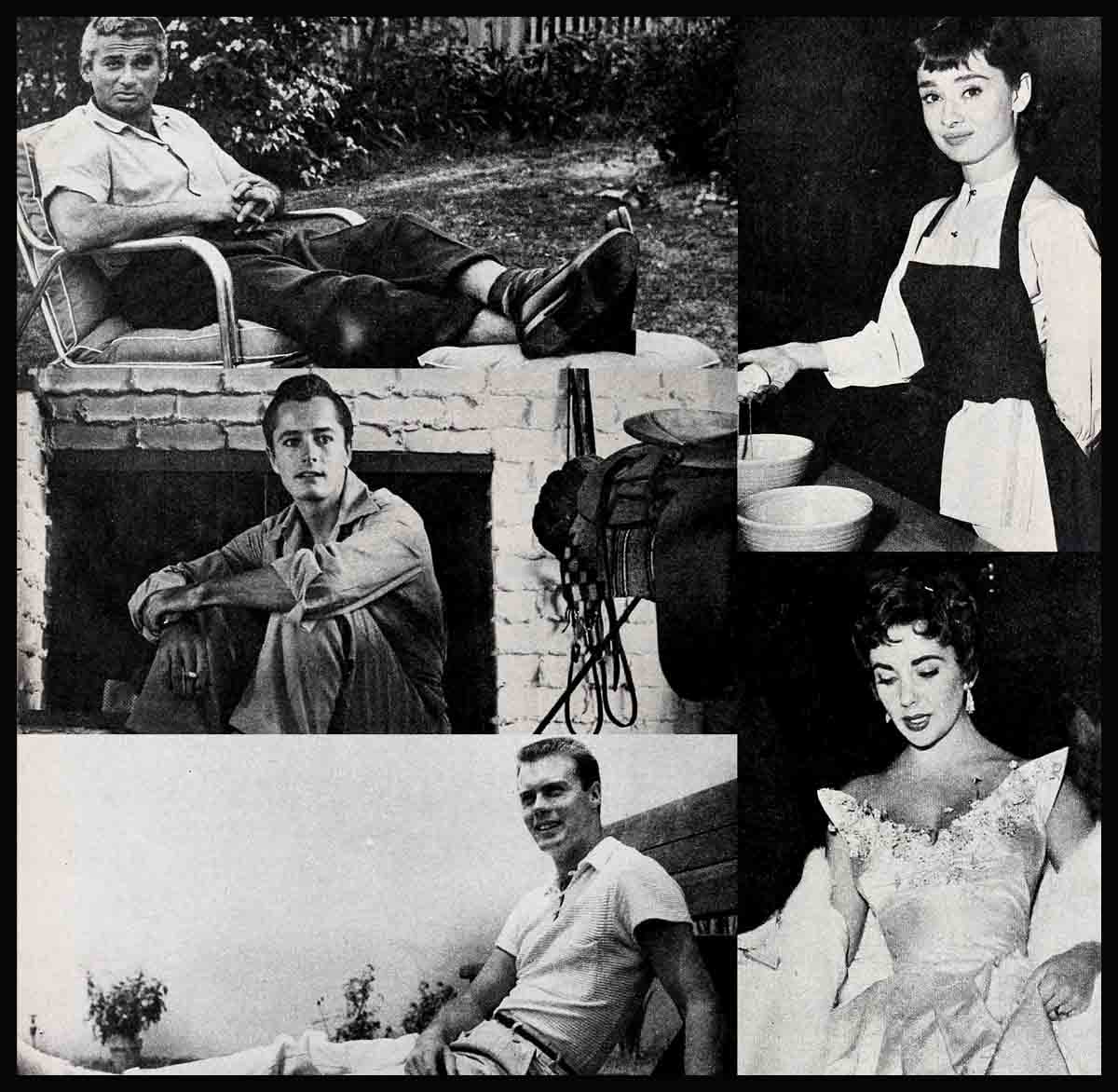
Oops! Your Error?
Standing in an easily accessible corner in Jane Powell’s bedroom is a big, all-inclusive copy of the dictionary with heavily fingered pages. Jane’s a word looker-upper, which goes back to one day when she was still in school.
“I was called upon to read an essay I’d written,” Janie says. “I mispronounced a simple word. I don’t remember what word it was, but there were snickers from several of my classmates. Our teacher, a wise and wonderful woman, interrupted my reading, asked me to sit down, then said to the class: ‘I want everyone in this room who has never made a mistake to stand up.’ There was complete silence—no one stood up.”
Which just goes to show, we’re all born equal—at least in the mistake business—for when it comes to making errors, seems nobody’s immune. Like Janie, haven’t you found yourself blushing after mispronouncing a common word? Well, it’s okay so long as you follow Janie to the dictionary and make it your new friend.
And how many times has someone told you not to do something but you felt you knew better—like taking math or typing instead of another study session—but you knew the easy way. Then months later, you painfully discover you can’t get into college because you need another year of math or didn’t get that job because you couldn’t type. Sound familiar, huh? Well, don’t despair, you’ve lots of famous company.
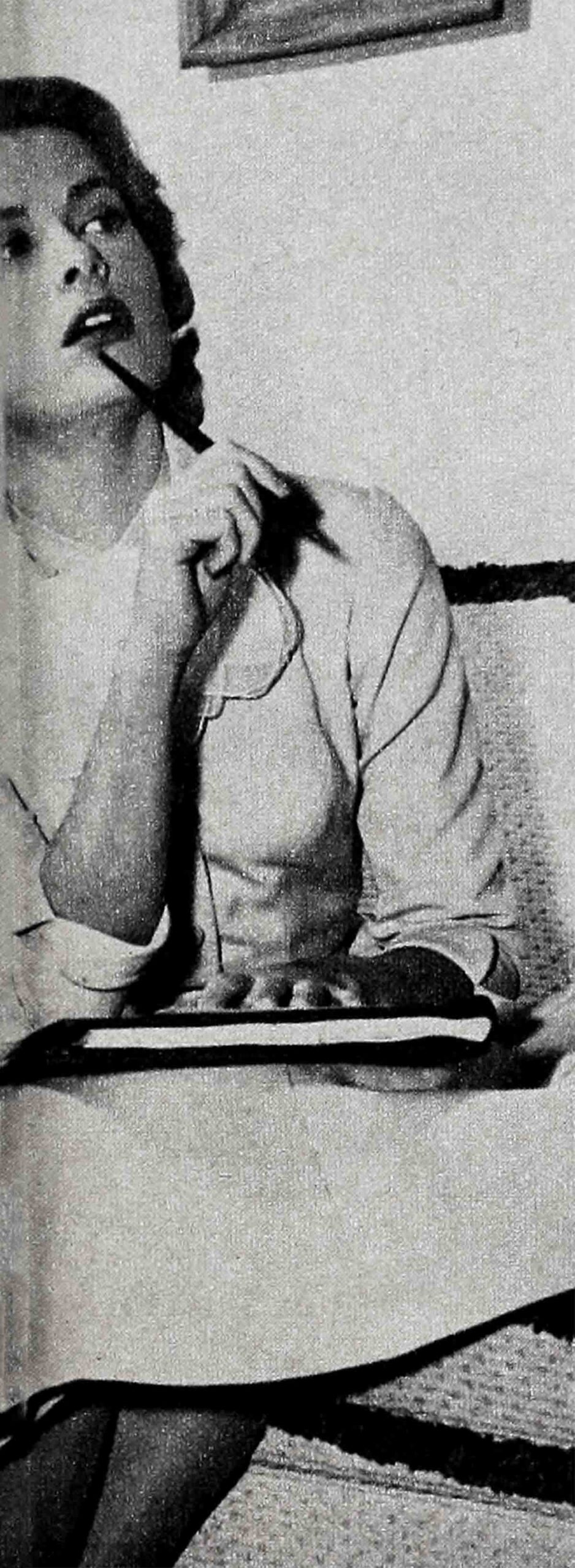
Grace Kelly, for one. No matter how much pleading Gracie got from mother to study her math, her thoughts were always with the latest venture of the local amateur dramatic group. Came time for Grace to take her college entrance exams for Bennington and she flunked. She failed to pass math. Which brings up another point worth remembering. Not all mistakes are tragic, for Grace went on to the American Academy of Dramatic Arts and from there to modeling and on to become Hollywood’s darling—a girl who could stand up with Academy Award winners. There’s hope for you, too, so take advantage of an error.
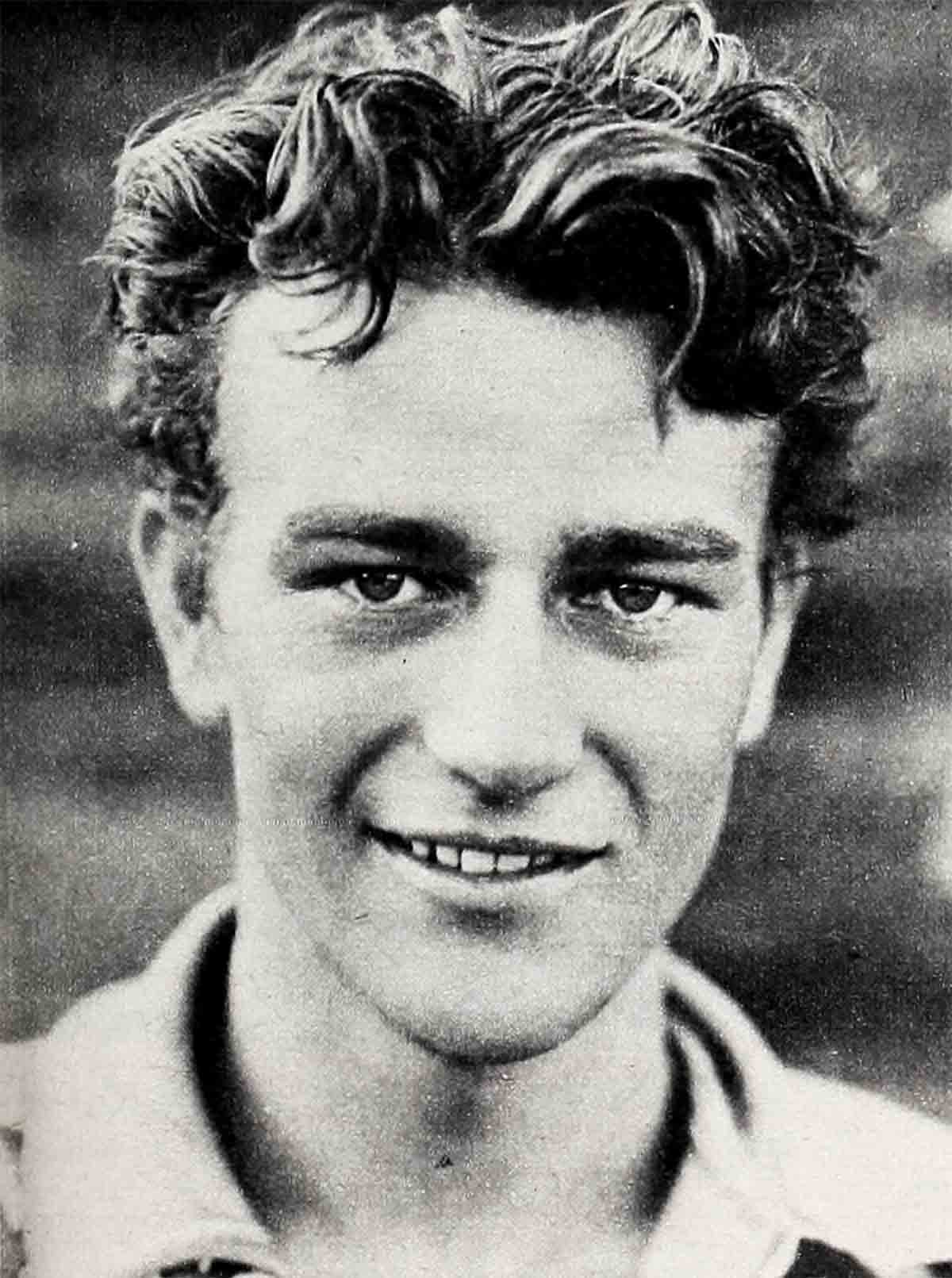
John Wayne’s what you’d call a pretty clever and astute businessman. After all, he’s been Mr. Boxoffice for so many years we’ve lost track of the number. He’s not only top movie hero but is now producing, through his own company Wayne-Fellows, such popular hits as “The High and the Mighty.” Would you believe that Duke says he wasted his first ten years in the movie business because he didn’t listen to good advice?
Seems Duke was working in pictures but from behind the cameras, not in front. He was doing pretty well, working as a grip, prop man, general Johnny on the spot and assistant director, when he got a bid to turn actor in a four-million-dollar movie called “The Big Trail.” All his buddies and friends tried to talk him out of it, explaining he didn’t have the experience, what’s more he’d make less money and, after all, he must recognize the fact that the young movie business was destined for drastic changes.
John Wayne knew what he wanted. He went into “The Big Trail” at seventy-five dollars a week. The picture was a flop. Duke’s acting, to quote Duke, “might have had something to do with it.” Meanwhile the depression, which just started, didn’t help; neither did the fact that the picture was made for a small screen. While the new screen was not of CinemaScopic proportions, it was big enough to make the four-million-dollar picture outdated before it was shown. As Duke says, “If I’d listened to others, I might have stayed-on working around the set until I decided what I really wanted to do and learned to act. I could have saved myself ten years of frustration and worry.”

And if you’re drooping around, trying to decide whether to be queen of a house-hold or a whiz at scholarly pursuits, take a tip from Duke: Begin easy, think things through and stay away from a mad flyer into the wrong business.
Six foot four and all of it sigh-bait, talented Bob Francis is one of the nicest guys to hit Hollywood. Humble, retiring, a perfect listener, a thoughtful companion, who’d ever think that Bob once boasted so loudly of big-headitis that brother Bill had to knock him through a bay window to knock some sense into his head? At eleven, Bob was well on his way to knowing what he wanted: nothing would do but he’d someday represent the United States on the American Olympic ski team. At seventeen, he was on his way. With his older brother Bill, he owned three ski shops which kept him in change and gave him every opportunity to work out the slopes.
His practice paid off and he was placing in every race he entered. One day, after competing in an important tournament, he returned to the ski shop and casually announced that he’d tried out and won, and with equal casualness announced that it was a cinch—despite the fact that everyone who was anybody had competed against him. He was just about to yawn, out of boredom, when his brother yanked him by the shoulders, spun him around and landed a punch on his jaw that sent hot-shot Bob through the window of their shop. His brother helped him struggle to his feet and led him back into the shop, where an indignant Bob listened to a ten-minute verbal beating that “hurt even more because I realized what Bill said was true. I learned then that no one can survive without confidence, but there’s a line that divides confidence and conceit and that’s humility. I’ve never forgotten this,” says Bob today, which may be the reason he’s one of the town’s best liked youngsters.
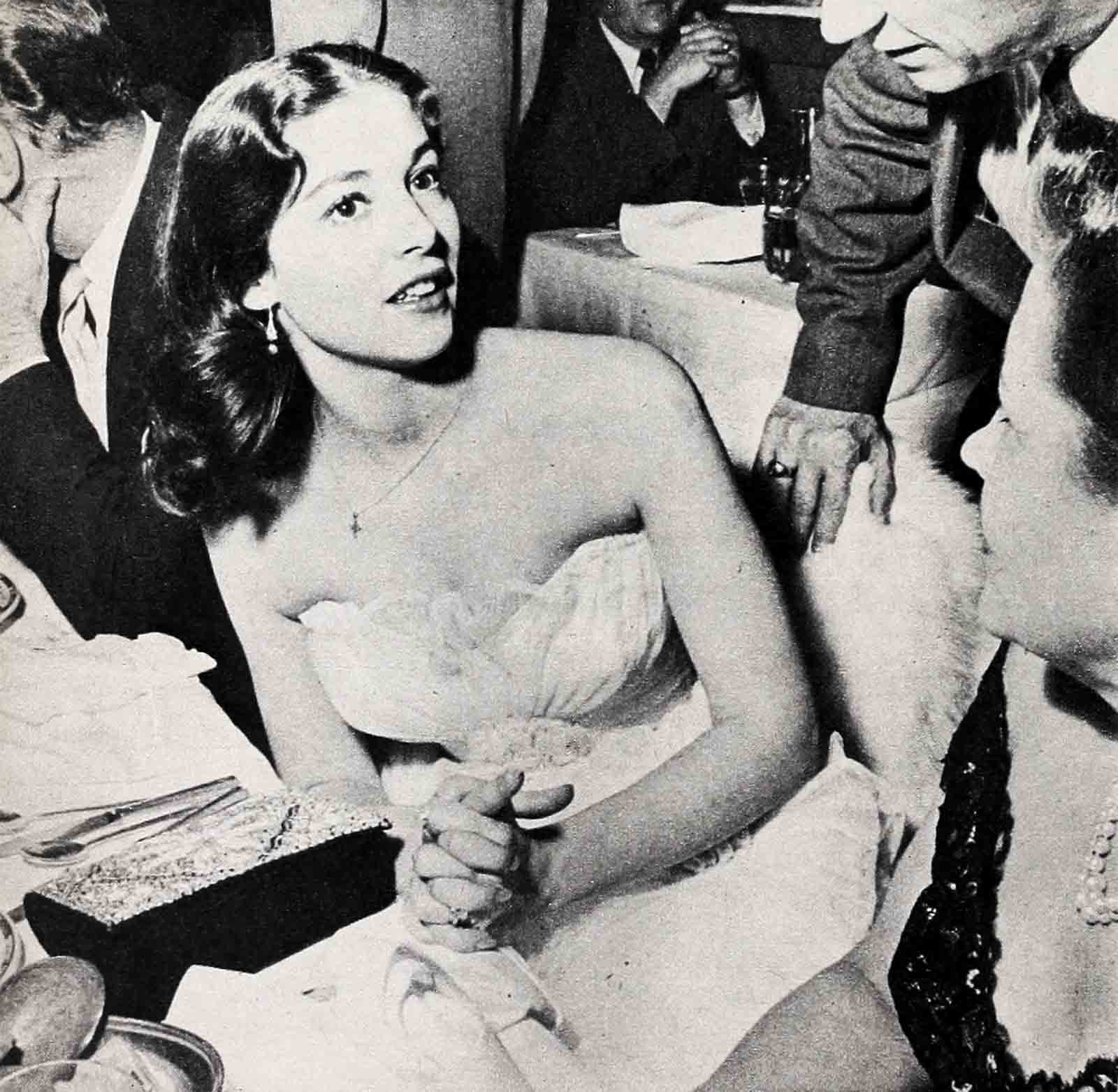
Beaming Pier Angeli has started a one-woman campaign to promote the institution of marriage. Pier couldn’t be happier, neither could her mother, Mrs. Pierangeli, incidentally. Pier’s only problem now is trying to figure out why she waited so long to become Mrs. Vic Damone. Four years ago, when she first met Vic and later when he proposed in Germany, Pier felt she was too young to be tied down by marital strings. Without a serious thought, she y declared, no marriage for me. Four long years went by—not all filled with fun either—and now that Pier’s married she wonders why she missed all the happiness that could have been hers with Vic. Maybe Pier made an error in waiting—then again, maybe she had some growing up to do before she could appreciate her present contentment and happiness.

Jeff Chandler’s six feet four, weighs 210 pounds and wears a shoe sized at 13—an impressive hulk of strength. Yet Jeff has the heart of a poet, the sensitivity of a composer and the gentleness of a surgeon, amazing when you consider his bulk and the rough-and-tough neighborhood he grew up in. But Jeff never was a toughie. In fact, he remembers (smiling now) how when he was a youngster there lived across the street from him five young boys, all brothers and all from the “we’re tough” school. Each day, as he came home from school, Jeff would cross the street when he approached their house. Then one afternoon, forgetting all about the brothers, he forgot to cross the street and ran smack right into the biggest and toughest of the lot. Before he had a chance to be frightened, his feared enemy ran like the dickens across the street. Months later, having made friends with his opponents, Jeff discovered they weren’t so tough; in fact, the way they told it, for months they’d been crossing the street to avoid “tough-looking” Jeff.
How many times have you avoided the girl who moved in next door because she was so snooty? That is, until you got to know her and she became your best friend. Sometimes, if you’re in doubt, it’s best to give the other guy or gal the break.
Have you an affinity for losing your house key, letting the bathtub overflow or burning the porch light all night? If it helps at all, so does Rock Hudson. Recently, having a special invitation for the weekend, Rock got up early, turned on a favorite Chopin LP and went in to bathe and shave. He then packed his small bag, ate a hearty breakfast and checked all the windows in the house to make sure they were locked, double checked the gas and lights before leaving. Two days later, after a weekend of relaxation, he returned home to find an eerie music-filled house. It didn’t take him long to remember he’d forgotten to turn off the record-player. What was left scratching, not even Chopin could have recognized.
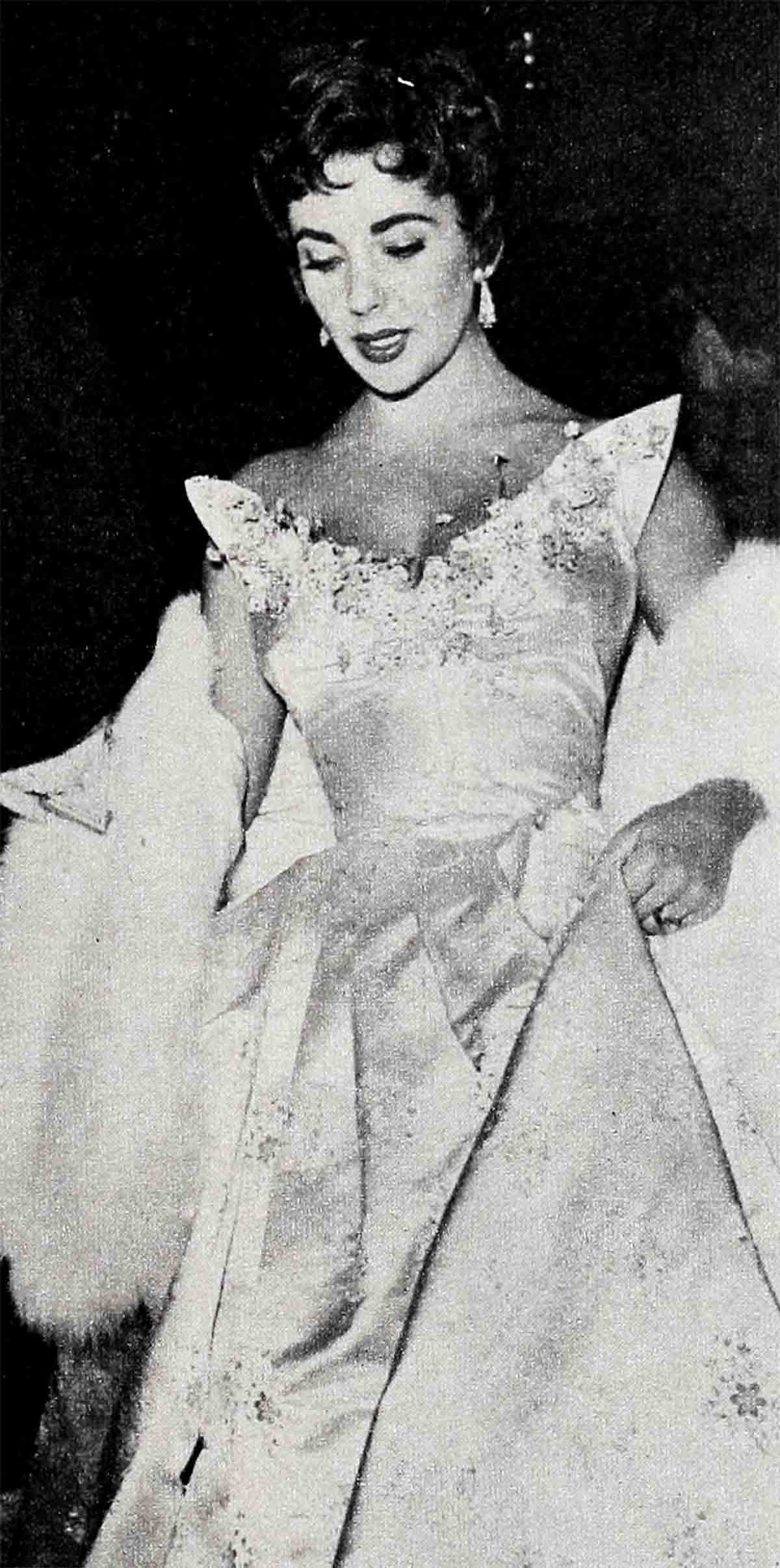
How many miserable times have you looked into the mirror, wrinkled your brow in disgust and turned away, moaning, “Oh, if I could only look like Liz Taylor.” Yet Liz, who has been looking at that same face for 23 years, until recently paid little attention to it. One thing that can be said about Liz, she’s never been impressed with her own beauty, hardly seems aware of the adoration it provokes. She rarely carries a purse, never can find her comb and would just as soon make-up once at eight before going out for an evening and forget about her face for the rest of the night. But after young Michael Wilding arrived, Liz discovered, regretfully, that she’d been taking her good looks for granted. For even Liz recognized something had happened to the reflection in the mirror. It took plenty of strenuous exercising—awful stuff for the lackadaisical Liz, and plenty of food-refusing, to get the Taylor back into those pre-Michael dimensions, but it’s a trim, well-groomed Liz that’s being seen around these days after her latest stork-invoked inactivity.

And if you’re really discouraged about the way you look, Audrey Hepburn has a lesson for all of us. Audrey for years had been mirror-shy. Every time she saw those busy eyebrows and over-sized eyes and wide mouth and un-Hollywood teeth, she’d flood herself with a feeling of inferiority and bemoan the very things that were to bring her screen and stage stardom, the qualities that were to be copied by adoring teenagers the world over. Lucky for Audrey, she was too honest to have Hollywood change them when it offered.
But May Wynn wasn’t so lucky, for lovely May was determined to do something about her delicate, well-balanced looks. She wanted “character,” so after landing a job at the Copa night club, she cut off her long black hair into something termed a crew cut. What was left, she dyed a bright carrot red. Can you imagine her dismay, when on opening night, the boss came ’round looking for that lovely girl with the long black hair? May almost fell through the floor as he berated her new look and threatened to fire her. “You were hired because of your natural beauty and what do you do? You go and make yourself look like every other dame walking up and down Broadway.” Lucky for May, and her fans, she learned early in her career to be her own pretty self.
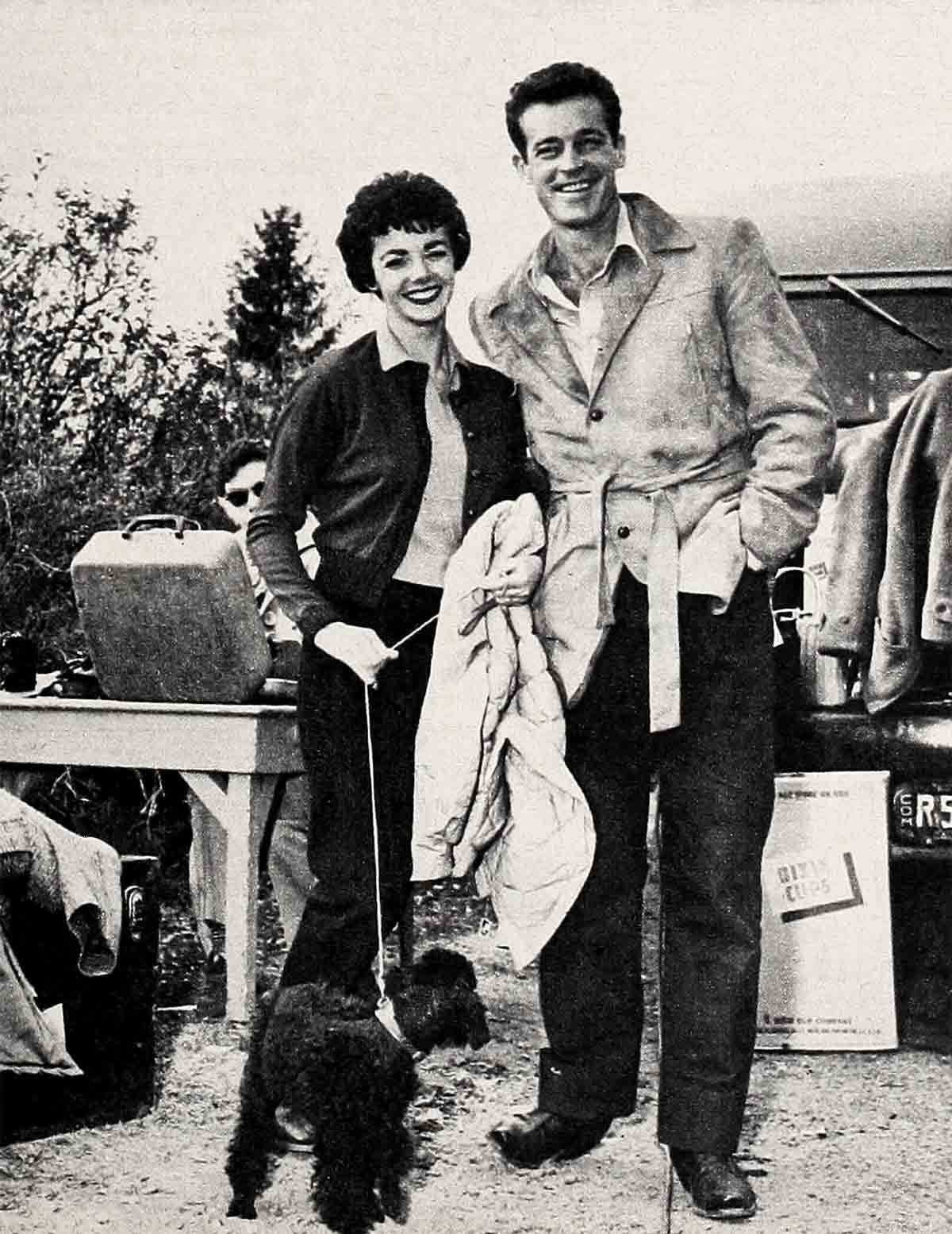
Guy Madison had to go through a lot of heartbreak and disillusionment before he discovered that you can’t fool everybody all of the time—especially yourself. When Guy first arrived on the Hollywood scene, he was a reserved, honest, outspoken young man. Then with his staggering hit in “Since You Went Away,” his overwhelming bobby-sox following, his new business and social demands, Guy found himself too busy to think and plan, too grateful to refuse. He dressed up formally, attended social functions no matter how tired or how much he disliked them. He played roles that he felt “were not right for me” because he had to repay the people who helped him. When the telephone stopped ringing and the parts failed to come in, Guy ‘Madison had lots of time to think, and he realized that to succeed at anything you had to be yourself. You couldn’t conform, remold yourself to other people’s liking because if you did you ended up never quite knowing what you were, what was right and what was wrong for you. Guy made up his mind to be Guy Madison, to do roles that he could believe in, to live his own life the way he felt was right. It was the right decision—this. year Photoplay readers voted Guy Madison the most promising star of 1955; he found himself a loving wife, is preparing a family future. What does it prove? Simply this, it’s your life; seriously consider how you want to live it, then forget about the Joneses, the professional advice-givers, the temporary social climbers.
Did you ever feel yourself stiffening up when you had to enter a room full of strange people? All of a sudden you seem all hands and your tongue’s tied so tightly that even saying “Pleased to meetcha” becomes an overwhelming challenge. It’s happened to Janet Leigh and Van Johnson and Kim Novak. Janet learned to be a charming listener; Van started wearing red socks so he’d have something to chat about and Kim, before she pried loose her tongue, had to remodel her form and change her name.
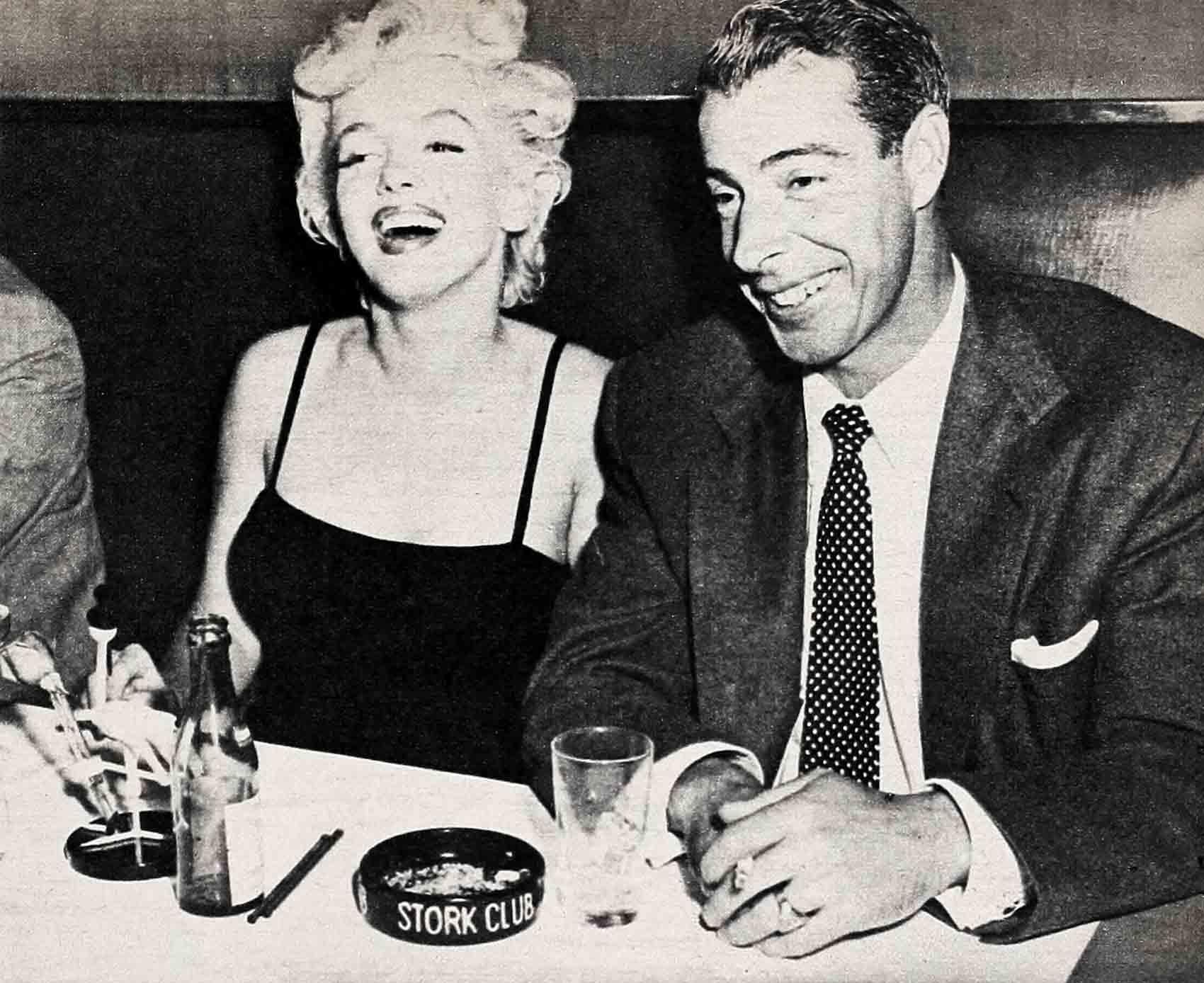
Born Marilyn Novak in Detroit, Kim later added a middle name “Ann” at confirmation because her initials then added up to MAN. Although Kim was aware of men at an early age, men seemed unaware of Kim at a much later age, which did nothing to add to this girl’s social talents. Kim, who was still Marilyn, fumbled through school and graduated with top honors as the girl with the biggest inferiority complex. Modeling and learning to dress well helped Kim stutter less; getting into the movies did even more. She had her name changed from Marilyn to Kim, her hair shortened and curled and her humiliating husky voice developed into the sexy tones you heard on “Phffft.” After nineteen years of mistaking her talents, Kim’s finally discovered how to make the best of what she has—a lesson for all of us.

Mickey Rooney once lived so high that when he visited New York, he didn’t rent a mere hotel suite, he rented two entire floors. And the Mick didn’t hire one car to drive around, he hired five Cadillacs. He didn’t marry one girl, but three of them, at different times of course. He spent money as though it were going out of style. Then for him it did.
Two years ago, at the age of thirty-two, Mickey was considered through, washed up. He didn’t have a studio contract, he had a hard time getting jobs in “B” pictures, he was out of money and he didn’t even have a wife.
That’s all changed today. Now Mickey’s starring in good movies like “The Bridges at Toko-Ri,” he has his own television series, “Hey Mulligan”—in fact, he’s doing so much and so well he’s had to incorporate and is now “Mickey Rooney Enterprises.”
Rooney’s mistakes are in the past, he hopes, but without them he couldn’t have attained his present maturity. “I guess I’m calmer, more tolerant, wiser than I used to be. I hope so,” he told me at lunch yesterday. “And I’m not sorry for the things I did. Brother, what I learned from them would fill a library. And the best thing those early mistakes taught me was to appreciate the wife I have now.”
Mickey, married for the fourth time, sincerely believes this marriage is for keeps. His wife Elaine somewhat resembles Ava Gardner, Mrs. Rooney #1. But unlike Ava, Elaine has a head for business. She has taken his finances in hand, paid off all of his debts, makes sure he saves his money and sees that he keeps up his child support payments to two of her matrimonial predecessors. “She’s good for me,” Mick says, “real good.”
Marilyn Monroe’s made her mistakes, too, and she has her friends worried over her fight with her studio, 20th Century-Fox. Marilyn has strong ideas on what she wants to do on the screen. She said recently, “I want to play roles with a heart in them. I don’t want to be a scheming, vicious woman on the screen. My fan mail scares me. I get a lot of it from men, and they’re as nice as can be. But women write and say they hate me; I’m sure it’s because of the roles I’ve played. Women didn’t hate Jean Harlow and she was pretty sensational with the men. I want to do the kind of things Jean did.”
Now why doesn’t Marilyn tell all this to Mr. Zanuck, her boss? He’s always willing to listen, and what’s more, he’s always wanted to please Marilyn. Let’s hope it’s not too late for them to get together again.
Marilyn made another mistake when she cut herself loose from Joe and from nearly everybody else in Hollywood. She wrote all those with whom she had been associated—her lawyer, her agents, etc.—and fired them. As her business manager told me, “You just don’t fire lawyers by letter.” Maybe Marilyn is sorry now. One thing’s certain, the Monroe seems to be thinking Joe was one friend she shouldn’t have let go.
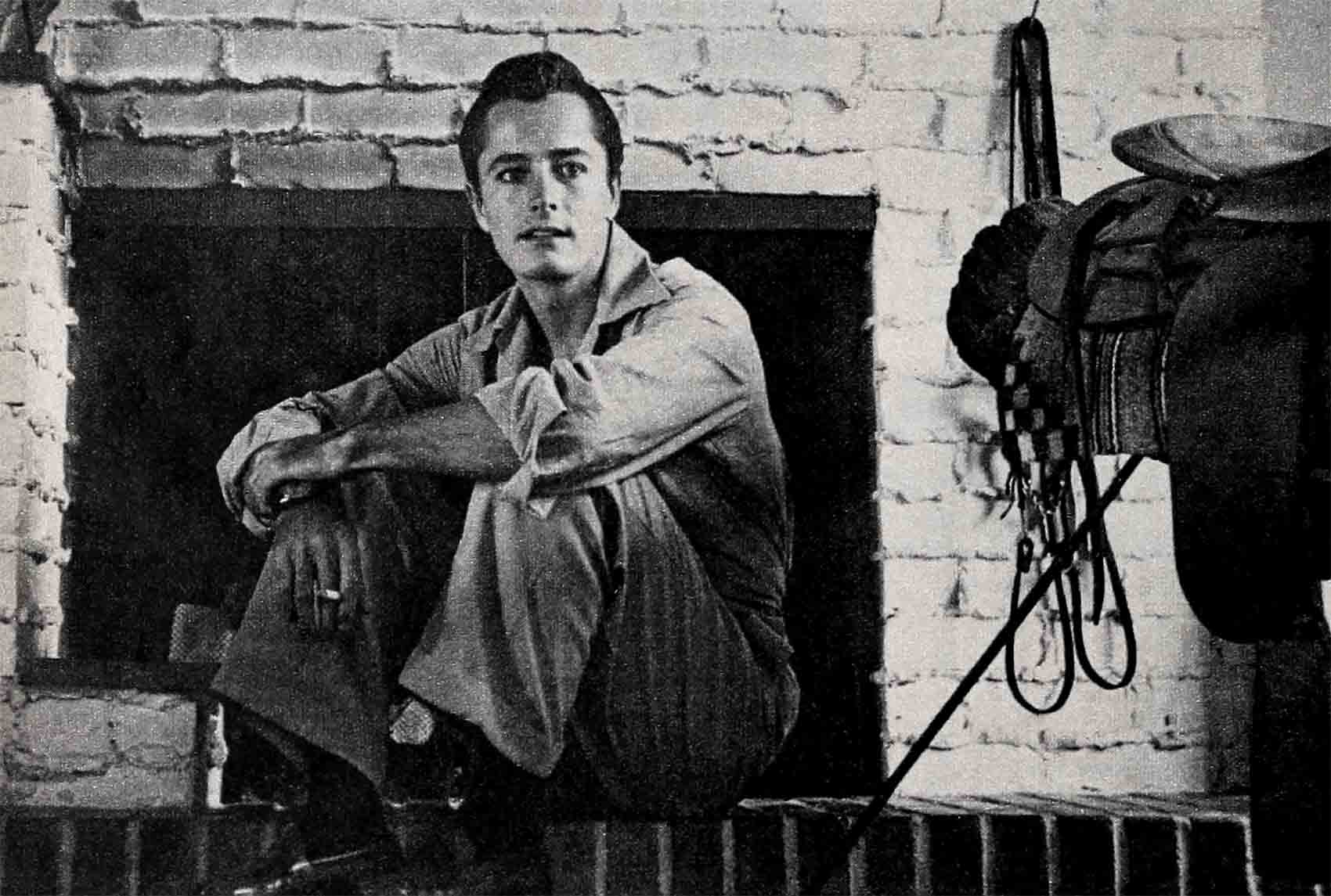
It’s happened to the best of us. We’re doing our job, doing it pretty well, too, we’re always ready to please; we’re working hard for advancement; we’re ready and able for more important work and what happens? Nobody seems to notice us—or our efforts. That night at the dinner table, we give forth on our frustrations, ending with, “I’ll tell them what to do with that job . . .”
John Derek and Terry Moore felt this way, too—once. John was a hit in “Knock on Any Door,” and he was good besides. Then what happened? Within two years, not another good picture. He fumed and ranted and Pati listened patiently about, “I could do better on my own.” Finally, she agreed with John, if he wanted his freedom from his studio, go ahead and ask. John did; he got it; and the next few years were mighty lean ones. Was it a mistake? Perhaps not, since John’s stock is rated high on the Hollywood talent market today and he’s learned patience and to accept responsibility.
Terry Moore’s been away from the screen for almost a year now, and her fans have been screaming for a glimpse of her ever since “King of the Khyber Rifles,” but the young Miss Moore kept turning down roles she felt would not help her career until “Daddy Long Legs.” In the meantime, has staying away from the fans helped Terry’s career? Sometimes, ’tis better to keep working and learning until your “big chance” comes along. Who knows though? Many a mistake has been turned into a blessing by a smart-minded lass. So if you’re presently living in a hole over a boner you’ve pulled, come on out—there’s always hope, besides you’ve got good company!
THE END
—BY SHEILAH GRAHAM
It is a quote. PHOTOPLAY MAGAZINE MAY 1955





vorbelutr ioperbir
4 Temmuz 2023I am curious to find out what blog platform you’re using? I’m having some minor security issues with my latest site and I’d like to find something more safe. Do you have any suggestions?